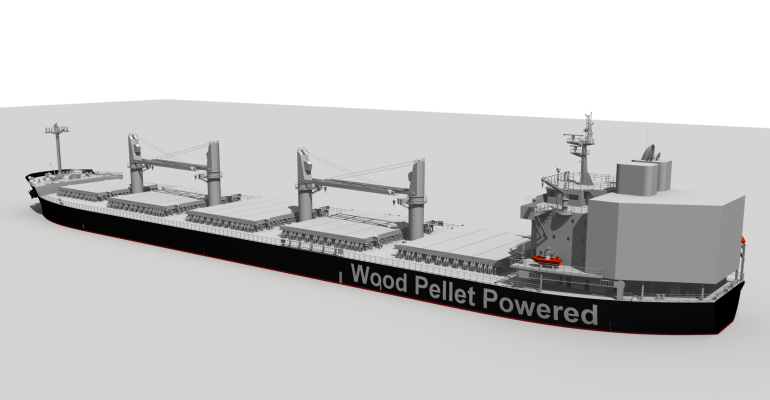NYK Line, NYK Bulk & Project Carriers, Tsuneishi Shipbuilding and Drax Group have agreed to develop a new ship capable of using gases created from biomass onboard to propel the vessel.
Successful development of the design will lead to exploring the possibility of building such a ship by the end of this decade.
The so-called bioship will be targeted at the handysize vessel segment responsible for carrying biomass pellets created from sawmill and forestry residues. The small bulkers are challenging to decarbonise due to their small fuel tanks, the partners said.
The group plans to research an on-board biomass fuel plant capable of powering a vessel. A gasifier will combust biomass at high temperatures and use the gases generated to propel and power the ship. Well-to-wake carbon emissions could be reduced by as much as 22% compared to fossil fuels, the partners claimed.
Shinichi Yanagisawa, executive officer of NYK Line, said: “The NYK Group is committed to providing its expertise in low-carbon and decarbonised maritime transportation as per this MOU and will utilisse the knowledge gained in this research and development to promote initiatives related to various energy-saving technologies.”
Paul Sheffield, Drax Group COO, said: “Drax aims to be carbon negative by 2030 and decarbonising our supply chain is critical to reaching this goal. This MoU is an important step in the development of the technology required to power and launch the world’s first bioship, which will support Drax’s decarbonisation goals but could also drive the innovation needed to transform shipping and cut carbon emissions and fuel costs in global supply chains.
Copyright © 2024. All rights reserved. Seatrade, a trading name of Informa Markets (UK) Limited.
Add Seatrade Maritime News to your Google News feed.  |

